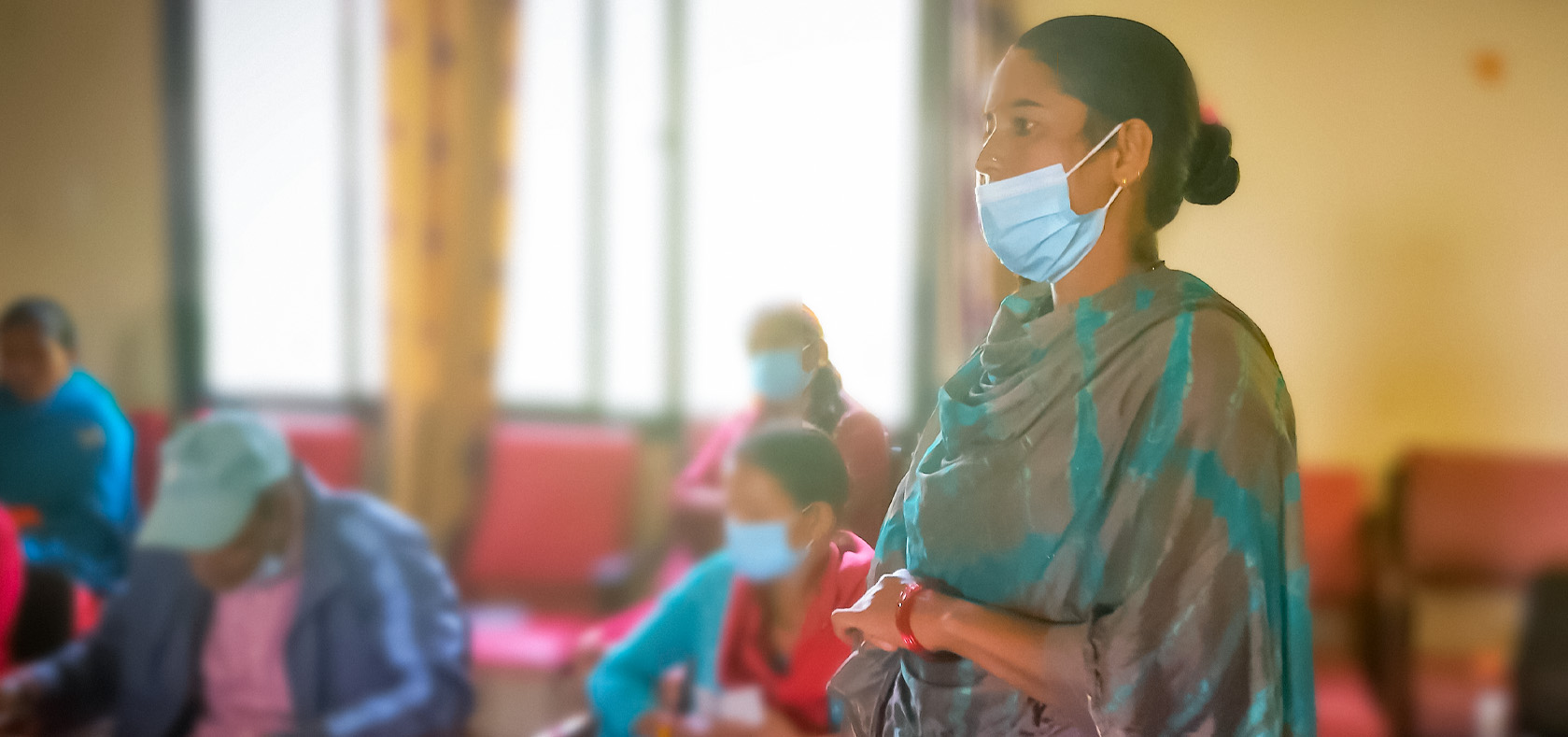From where I stand: “Do not wait for others to hand you your rights”
Sharada Bista is the founder and chair of Disability Rights Promotion Forum in Nepal. She is from Doti District, in the Sudurpaschim Province of Nepal. Her drive to fight for those rights comes from growing up in the far west of the country with a physical disability herself.Date:
Interviewed by Georgia Westaway


My lived experience as a woman with a disability is what drove me to become a disability rights activist. I grew upwatching society discriminate, insult, and shut away people with disabilities. Determined to overcome theseinjustices, I knew that a community was only as strong as its members who are furthest behind.
When I first started working on the rights of persons with disabilities, I found it difficult to speak up: I couldnot express myself well, I hesitated to talk in public. However, little by little, I gained confidence and learnedto raise my voice.
It is with this voice I say:
To women with disabilities: We have rights, and we must demand these rights. Do not wait for others to give you yourrights, take them yourself. Actively participate in life and advocate for yourself. I am with you – I will notstop working to increase public awareness of your rights, I will advocate for your participation in society, I willsupport you to pursue opportunities to generate income and be independent. We are equal as individuals, and powerfulwhen we speak with a united voice. Put your hesitations aside, and know that behind you is the strength of womenwith disabilities everywhere.
To the community: We can be stronger if we worked together. We, people with disabilities, know that we can contributeto the community, just as abled persons contribute. The difference between women and women with disabilities is inthe way that you treat us – there is no difference in terms of the value of our contributions. Let us worktogether to realise and recognize the contribution of persons with disabilities, and to put an end to shame andsilencing. Only when we work together can the community move forward together.
To the parents, guardians, and caretakers of children with disabilities: Let’s empower the next generation ofpersons with disabilities through education. Government and private schools allocate scholarships for children withdisabilities. I am advocating with schools to ensure these scholarships are realized. Talk to your local schoolabout enrolling your child and getting them involved in school clubs. As a mother, guardian and caretaker myself, Iknow it is hard to see your child leave the home, especially if they have special needs. But the education yourchild will receive and friendships they will make will carry them forward in the future.
To the government: Take additional measure to provide women with disabilities with legal identity cards, for this isthe key to accessing government services and support. Identity cards are doubly important for women withdisabilities as they have a greater reliance on government services and support, such as healthcare, subsidies,legal aid, and more, due to their lower income and ability to afford alternative services. Additionally, ensurebudgets are allocated and spent in support of persons with disabilities. Don’t think that we don’t knowabout the policies and programmes – we know them very well.
For my part, I will continue to fight for the rights of persons with disabilities, and to promote awareness andunderstanding within communities. Yesterday, people feared telling others they are living with a disability; familymembers hesitated to support relatives with a disability to participate in festivals and weddings; and societyside-lined persons with disability from participating in community life. Tomorrow is a new day, and anotheropportunity to move forward in support of a new lived experience for women with disabilities; one that is just, fullof opportunity, and celebrates everyone’s contribution, no matter their ability.
UN Women with support from the Government of Finland and United Nation Partnerships on the Rights of Persons withDisabilities has been supporting gender-responsive and inclusive sub-national governance in Nepal’sSudurpaschim Province. Sharada Bista was a participant of this initiative.
UN Women promotes the rights of women with disabilities, in line with the United Nations Convention on theElimination of All Forms of Discrimination Against Women (CEDAW), Conventiononthe Rights of Persons with Disabilities and other multilateral agreements. The InternationalPrinciples and Guidelines on Access to Justice for Persons with Disabilities were developed by theOffice ofthe United Nations High Commissioner for Human Rights and have been endorsed by the International Commission ofJurists and the International Disability Alliance.